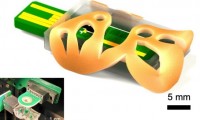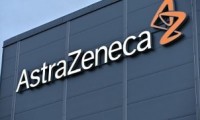-
Blood-Based Machine Learning Assay Noninvasively Detects Ovarian Cancer
- Source: drugdu
- 124
- April 13, 2024
-
PureTech Startup Gets $100M to Try For Success Where Sage & Others Fall Short in Depression
- Source: drugdu
- 142
- April 12, 2024
-
Philips restricted from selling respiratory machines in DOJ consent decree
- Source: drugdu
- 77
- April 12, 2024
-
3D Printed Point-Of-Care Mass Spectrometer Outperforms State-Of-The-Art Models
- Source: drugdu
- 140
- April 12, 2024
-
AstraZeneca, Daiichi Sankyo Drug Enhertu Becomes First Tumor-Agnostic ADC Cancer Med
- Source: drugdu
- 84
- April 11, 2024
-
Enhertu Gets FDA Accelerated Approval for Unresectable, Metastatic HER2-Positive Solid Tumors
- Source: drugdu
- 127
- April 10, 2024
-
First 4-in-1 Nucleic Acid Test for Arbovirus Screening to Reduce Risk of Transfusion-Transmitted Infections
- Source: drugdu
- 91
- April 10, 2024
-
FDA Approves Abecma for Patients with Relapsed or Refractory Multiple Myeloma Following Two Prior Lines of Therapy
- Source: drugdu
- 81
- April 9, 2024
-
AstraZeneca reports positive Phase III results for Imfinzi in small cell lung cancer
- Source: drugdu
- 151
- April 9, 2024
-
Study reveals new aptamer targeting tool can detect early signs of motor neurone disease
- Source: drugdu
- 143
- April 9, 2024
your submission has already been received.
OK
Subscribe
Please enter a valid Email address!
Submit
The most relevant industry news & insight will be sent to you every two weeks.













